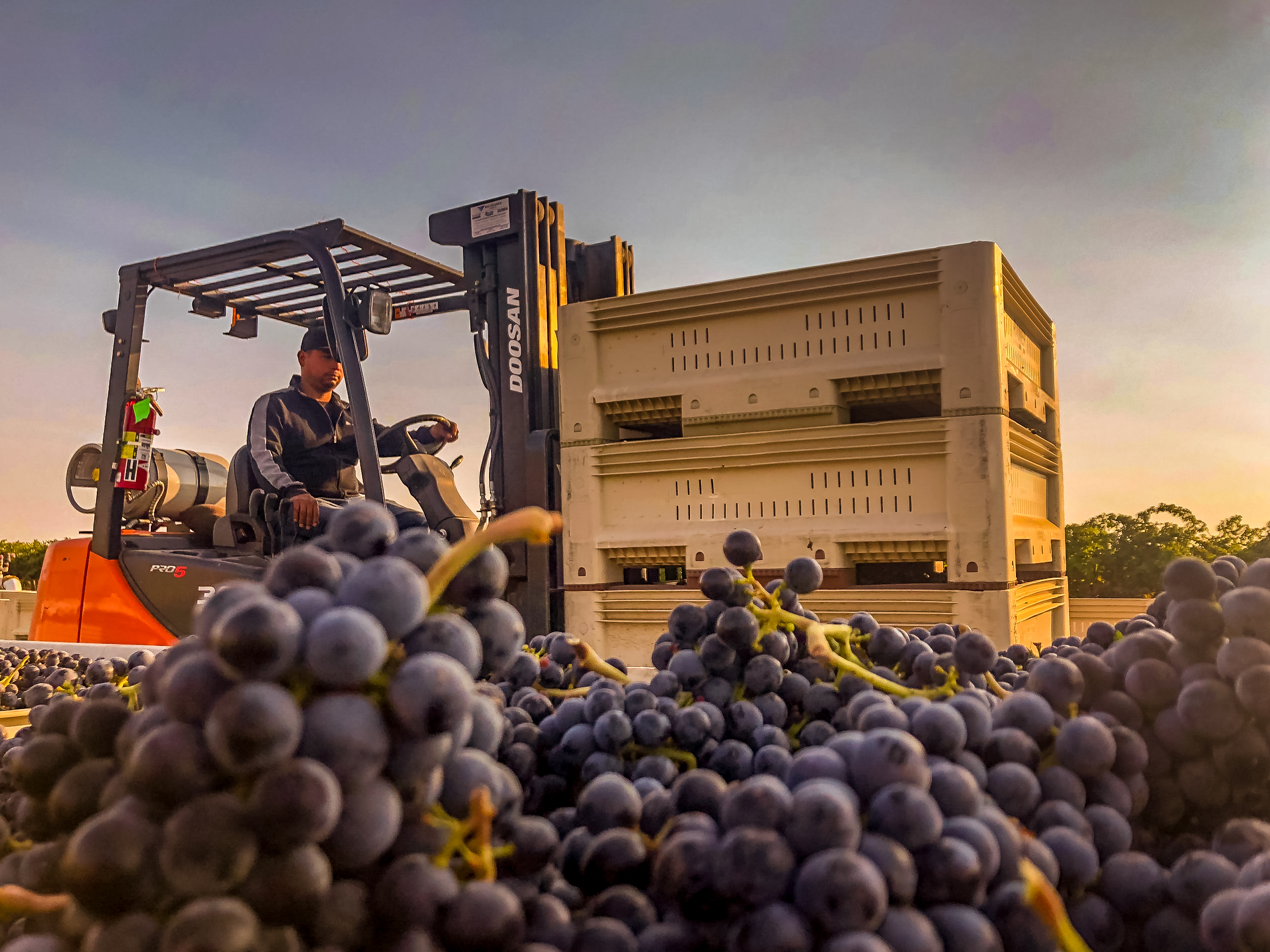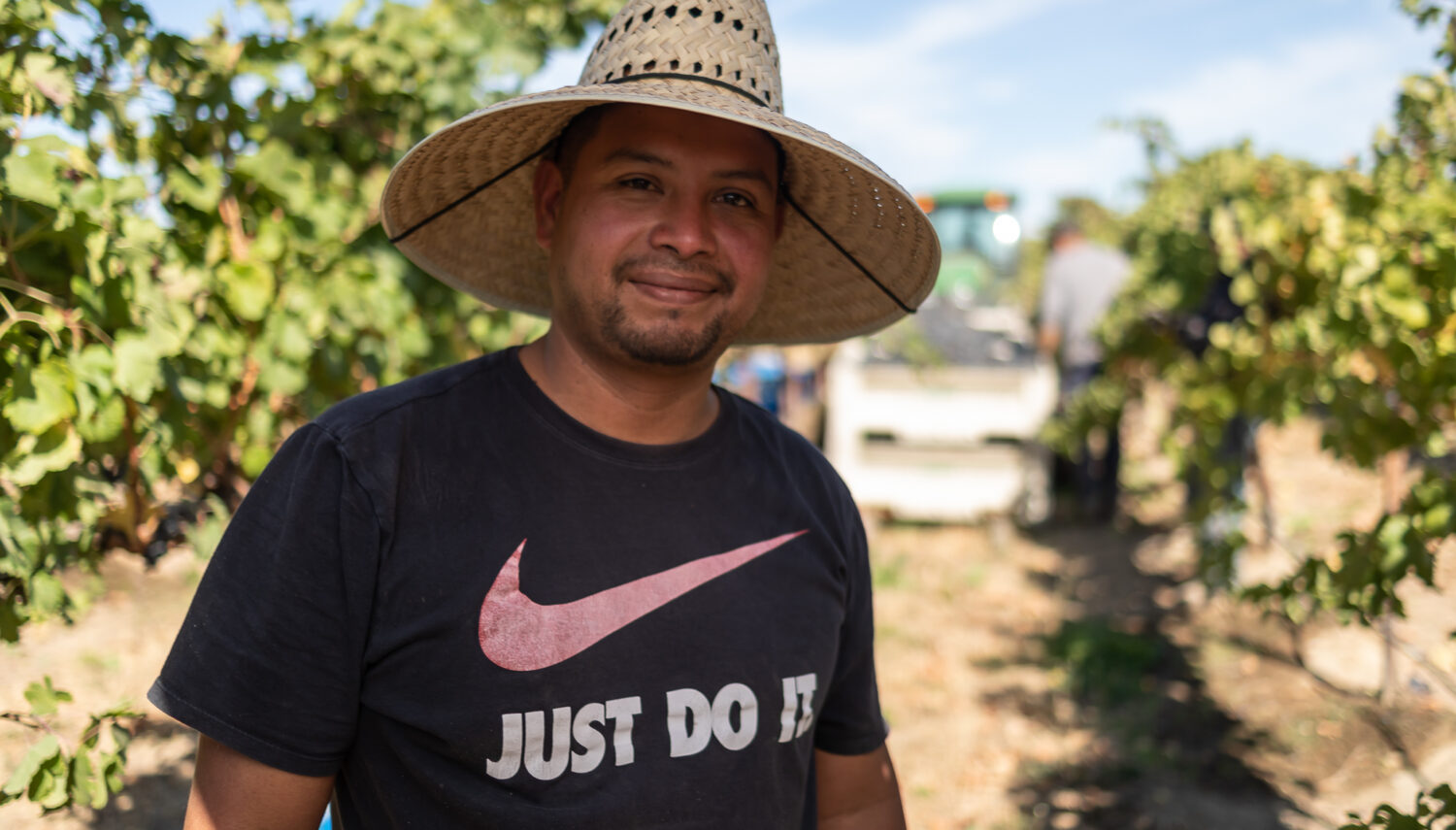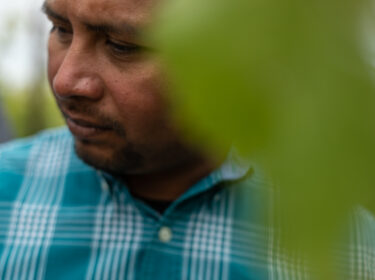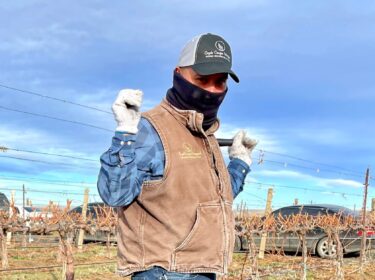“I’m a sunrise person. I love the sunrises.”
Meet Tony Flores, Assistant Vineyard Manager at Andrews Family Vineyards in the Horse Heaven Hills AVA. In his 20 years there, Tony’s witnessed a lot of change. “When I started twenty years ago, we worked 400 acres of grapes. Now, we’re at 1,300 acres.” When he’s not overseeing his 40-person crew members, Tony spends his time with his kids, fishing in the river, and playing fútbol. But being in the industry for so long, Tony’s got a lot to say. “I have so many stories, but I like to talk most about harvest. That’s when we get to see the fruit of our labor.”
Traducido por Rosanna Lugo
Washington Wine: ¿Cuál fue tu camino hacia el vino? ¿Creciste en la agricultura o en Washington?
Tony Flores: Llegué a Washington cuando tenía 14 años. Vivíamos en una granja y trabajábamos en agricultura en el bajo Valle de Yakima. Estuve dos años en labores generales, y luego vine a trabajar en la viña, y me gustó. Fue un poco fácil en comparación con los otros trabajos en agricultura que tuve. Una vez allí, leí y estudié qué tan rápido estaba creciendo esta industria. En el pasado, este lugar tenía espárrago, así que comencé a cortar espárrago y luego me iba a trabajar en la viña. Me gustaba más el trabajo de la viña, entonces decidí quedarme trabajando en la viña.
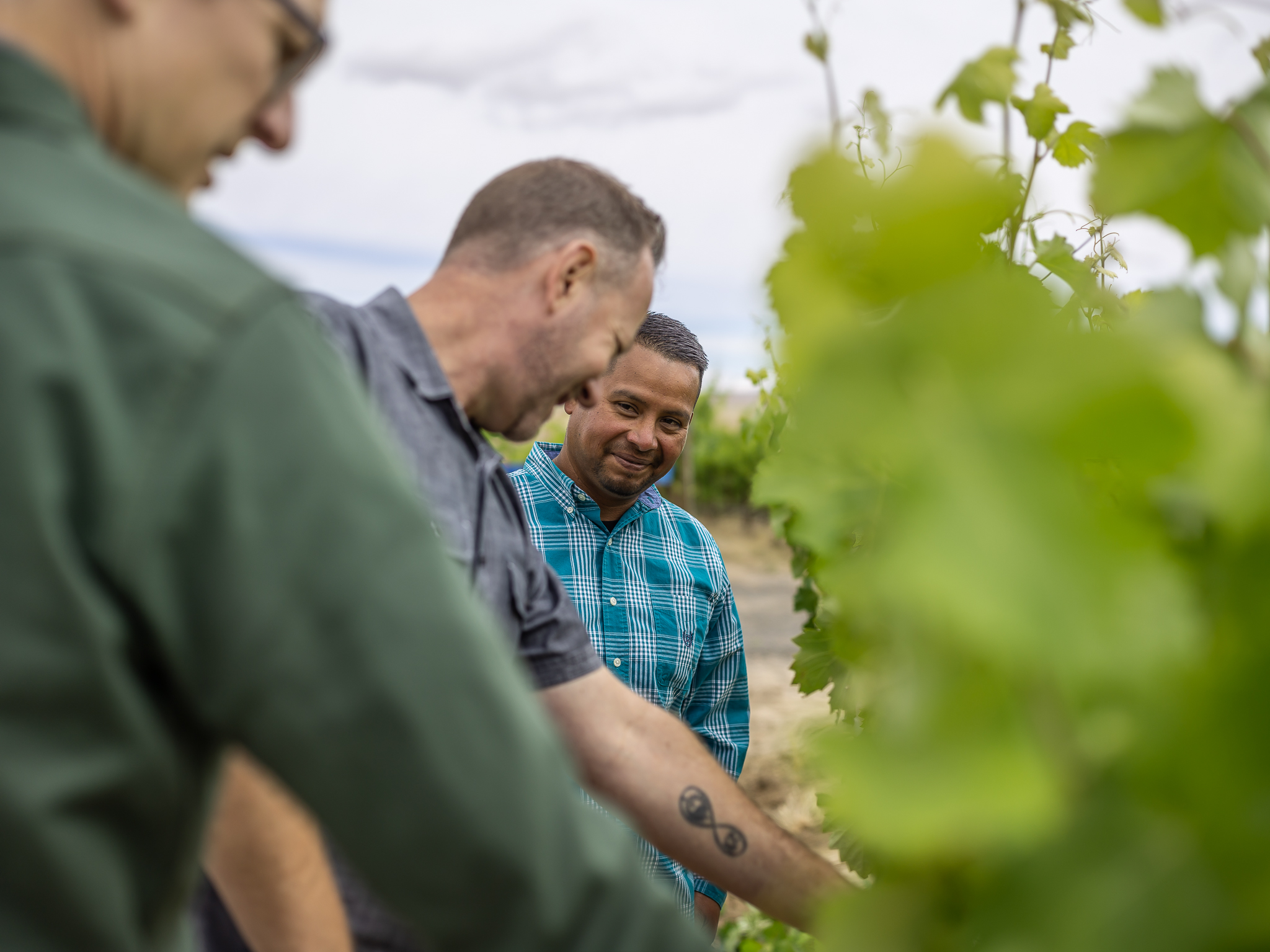
WW: Usted mencionó justo antes de que empezáramos que ha sido capataz durante nueve años. ¿Cuánto tiempo ha estado en este viñedo en total?
Tony: Veinte anos.
WW: ¡Veinte años es una cantidad significativa de tiempo! Cuéntame un poco sobre los cambios que has visto trabajando en la industria durante más de dos décadas.
Tony: Cuando comencé hace veinte años, trabajábamos 400 acres de uva. Luego comenzamos a plantar más plantas de uvas, y ahora estamos en 1300 acres. Antes teníamos cuadrillas pequeñas; ahora tenemos cuadrillas más grandes. También tenemos máquinas. Usamos parte maquinaria, parte obrera. Crecimos muy rápido.
WW: Eso es increíble. Entonces, como capataz que supervisa tantos acres, ¿cómo es un día normal para usted?
Tony: Mi responsabilidad es asegurar que todo vaya bien. En este momento, estamos podando. Podamos lo que estaremos cosechando como meta. La cosecha es muy importante. Es importante hacer el trabajo correctamente ahora, para que la siguiente fase del trabajo sea más fácil. Si lo hacemos incorrectamente, tendremos dificultades en el camino.
Muchas responsabilidades como capataz, luchas con la mano de obra en el sentido de la cantidad de personas. A veces tenemos de 20 a 30 personas y, a veces, es difícil mantener contentos a todos los empleados. Mantén contento al jefe. No es aburrido. Podamos durante dos meses, meses amarramos/entrenamos durante dos meses. Todo cambia, así que no es un trabajo aburrido. Pero aquí estamos, con un poco de experiencia, y estamos en constante aprendizaje.
Aquí estamos, y estamos en constante apredizaje.—Tony Flores
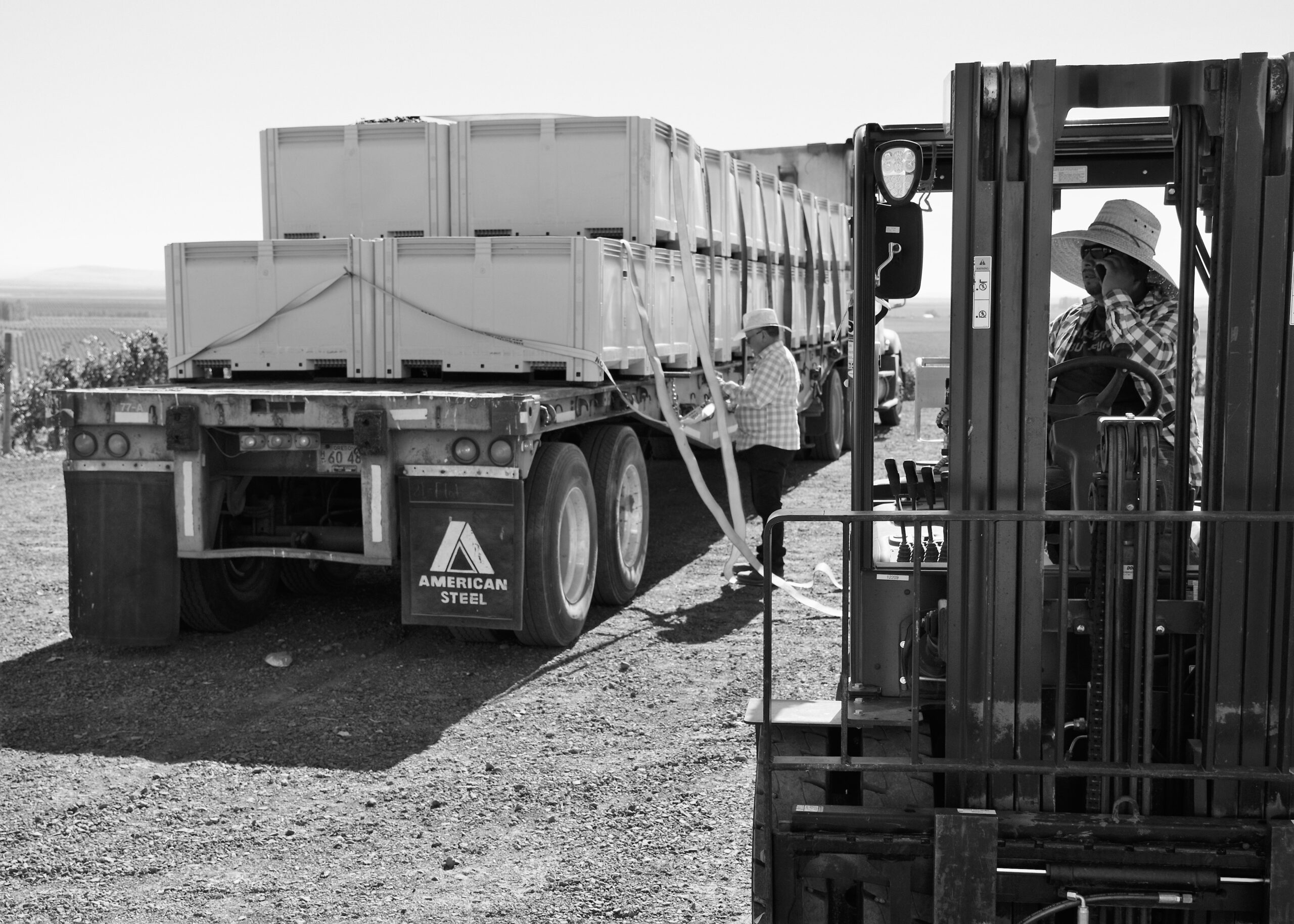
WW: ¿Tienes una época favorita del año o una parte favorita de la cosecha?
Tony: Mi época favorita del año es la cosecha. Tienes la oportunidad de ver el fruto de nuestro trabajo. Cuando estamos cosechando y vemos que estamos alcanzando nuestra meta anual. Los compradores están contentos, el jefe está contento, los trabajadores están contentos. Esta es mi época favorita del año, y la disfruto más. Es cuando me doy cuenta de que todo salió bien. Cuando las cosas no van bien, identificamos y revisamos el error, los factores que causaron el problema, y aprendemos de ello para que al año siguiente las cosas salgan mejor.
Hay muchos factores cada año, así que lo que sea que esté bajo nuestro control, lo que sea que podamos manejar, lo hacemos lo mejor que podemos. Pero a veces otros factores afectan la calidad y el tonelaje al final.
WW: Estamos muy emocionados de tenerlo a usted y a todos en este programa, así que un par de preguntas para conocerlo mejor. Mi suposición es que has visto muchos hermosos amaneceres y atardeceres. Entonces, ¿eres una persona del amanecer o eres una persona del atardecer?
Tony: Soy una persona del amanecer. Me encantan los amaneceres.
WW: ¿Dónde creciste? ¿Qué había antes de Washington?
Tony: Crecí en un pequeño pueblo en Guerrero México y me mudé a Washington a una edad muy joven, creciendo en la parte baja del Valle de Yakima, por lo que he pasado la mitad de mi vida aquí en Washington.
WW: ¿Qué hace Tony fuera del trabajo del vino? ¿Es la familia, el aire libre o algo más?
Tony: Fuera del trabajo, me gusta mucho pescar. Estamos muy cerca del río Columbia, así que voy a pescar tres veces al mes, cuando tengo tiempo. El otro es fútbol. No es que sea bueno, pero me gusta jugar. Aquí tenemos una liga local, así que jugamos aquí.
WW: ¿Qué es algo que estás deseando contar de este año?
Tony: Tengo tantas historias, pero me gusta hablar más sobre la cosecha. En este momento, no estoy seguro de haber visto las plantas, pero no se ven tan vibrantes. Esto es algo que, al podarlos, empiezan a verse “vivos”, tomando diferentes colores. Así que también me encanta esta época del año.
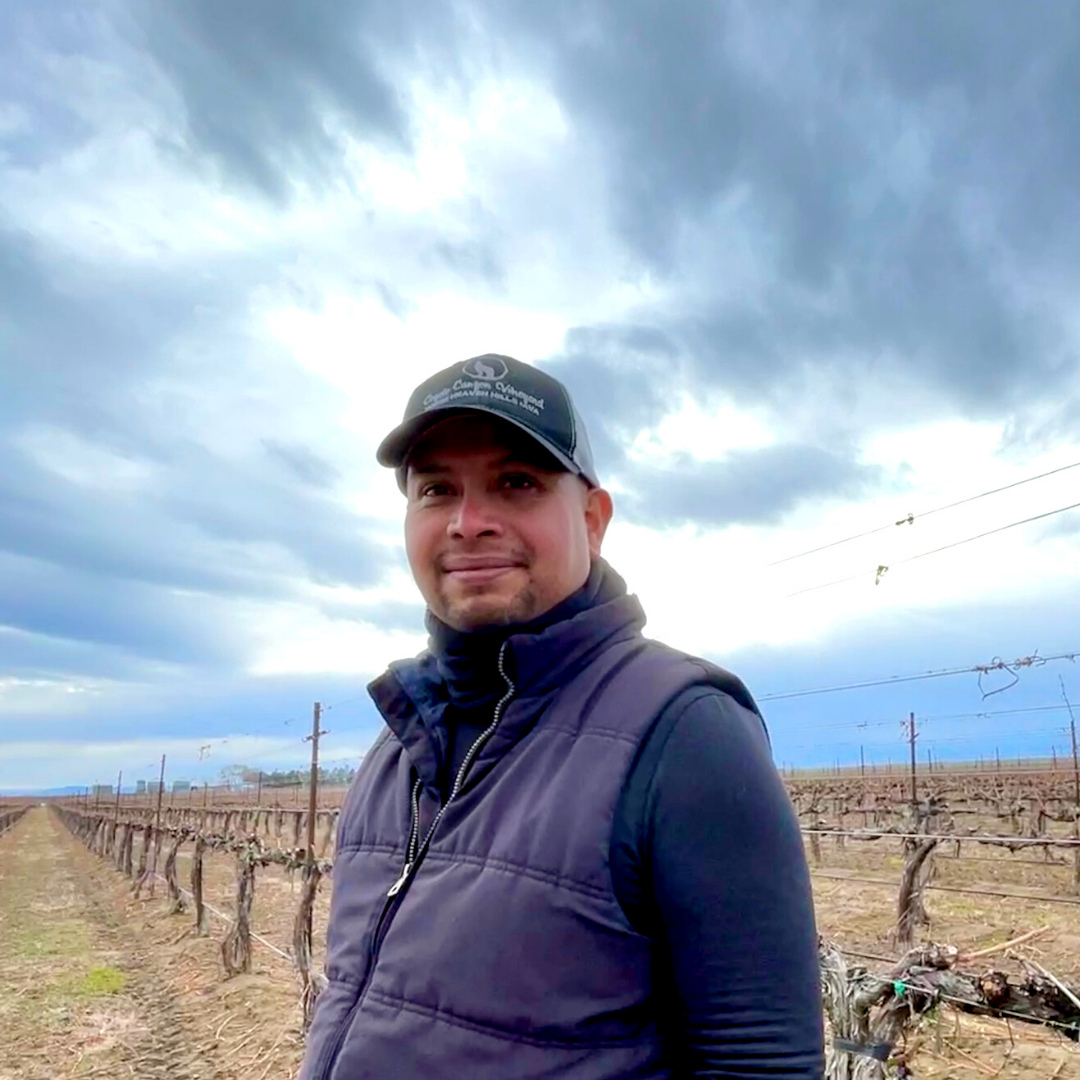
WW: ¿Tienes algún mantra? ¿Una frase que te mantiene en marcha?
Tony: Bueno, para mí, siempre se trata del producto. Eso me mantiene muy motivado. Me motiva mucho. Es mi pasión. Por ejemplo, si me piden que recoja 4 o 5 toneladas, haré un gran esfuerzo para asegurarme de que eso sea lo que recojamos. Continúa motivándome, cuando mi jefe al final está feliz al ver que hemos realizado el trabajo. También me encanta capacitar a mis trabajadores. Les hago saber el “por qué” detrás de lo que estamos haciendo. Estamos haciendo este trabajo para alcanzar nuestra meta. Eso también me motiva: Que todos estamos en la misma página. Al ver que la motivación continua, motivo a mis cuadrillas. Para asegurar que el producto final sea de alta calidad.
Al ver que la motivación continua, motivo a mis cuadrillas.—Tony Flores
WW: Me encanta cómo se dice eso: mantenerse motivado motiva a los demás. Dos preguntas finales. La primera es, ¿cuál es tu sonido no musical favorito?
Tony: El sonido de la poda. Por ejemplo, ayer por la mañana, hice un video. Cuando llegan las cuadrillas, no están hablando. Llegan y se ponen manos a la obra, podando en silencio. Me gusta el sonido de cuando los podadores están cortando las ramas de la planta de la uva. No es que no me guste que hablen, pero cuando estamos trabajando lo único que se oye son las podadoras, trabajando rápido, haciendo ese sonido.
WW: Y última pregunta: ¿Qué te mantiene en marcha? ¿Cuál es tu combustible?
Tony: Por la mañana, mi rutina es té, té verde. Rara vez bebo café, así que cualquier tipo de té. Luego llego al trabajo y me aseguro de que todo esté en orden y listo para funcionar. Les digo a mis equipos: cuando todos ustedes están haciendo su trabajo y yo estoy haciendo el mío, todos estamos contentos. Y después del trabajo solo se trata de mis hijos. Tengo dos niños pequeños, un hijo de cuatro años y una niña de dos años. Paso el resto del tiempo con ellos.
Depués del trabajo solo se trata de mis hijos.—Tony Flores, Andrews Family Vineyards
